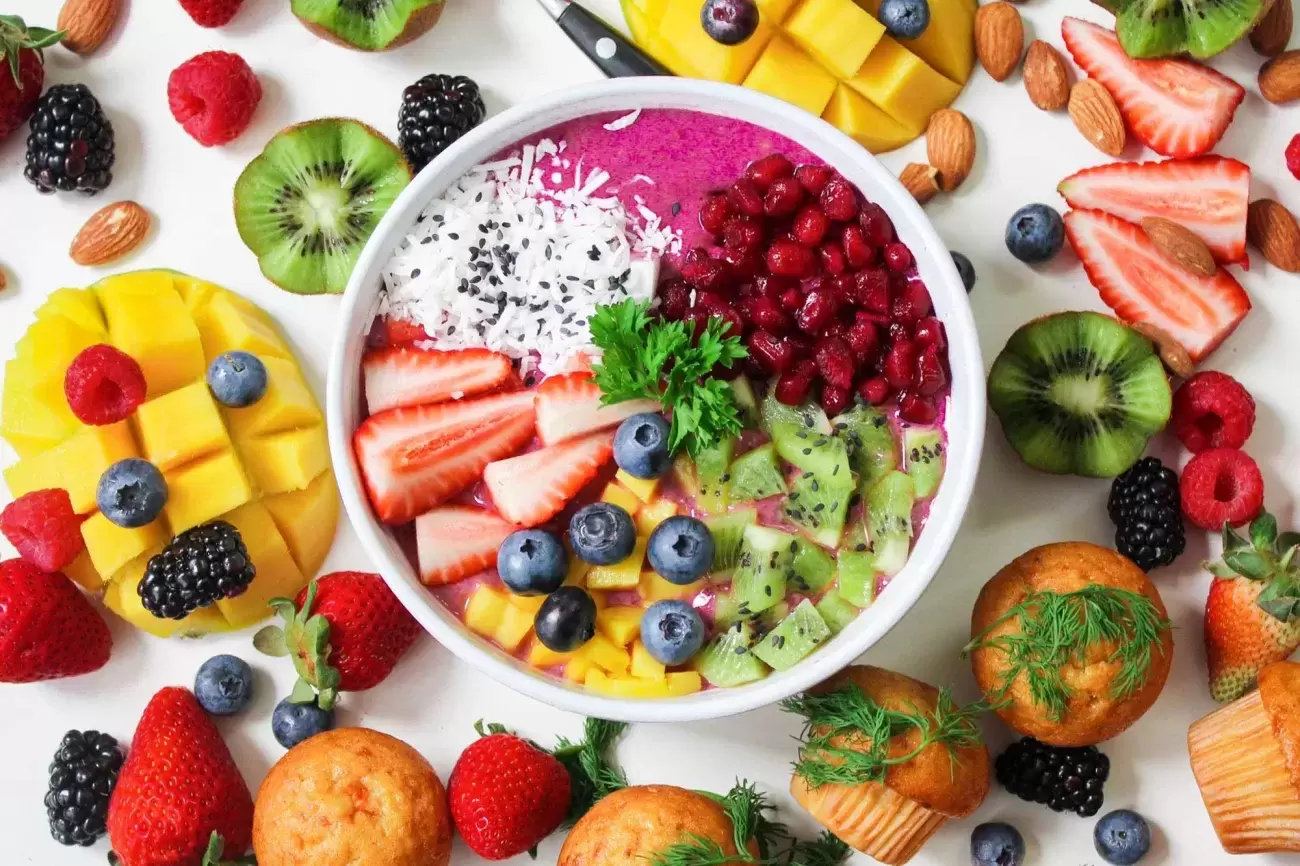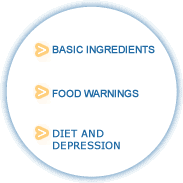Eat Well

How Healthy Eating Helps
Mom was right: You've got to eat well to function well. Just in case you didn't gobble up Mom's wisdom, here are some useful tidbits.
Among other benefits, good food can:
- boost your energy
- lower the risk of developing certain diseases
- provide fuel to your brain
- counteract the impact of stress on your body
- affect mood-related body chemicals
In an unhappy twist, good nutrition can help at times of stress, but that's exactly when lots of us tend to eat less well. According to a recent survey nearly half of Americans overeat or eat unhealthy food to cope with stress. In fact, it's not just that we're seeking creamy comfort—our stress hormones actually give us the munchies.
Still, if you follow some reasonable guidelines you may be able to reduce your stress and promote your overall health and well-being.
The Basic Ingredients
No one knows exactly which foods promote maximum mental health. But following some basic suggestions can boost your energy, mood and overall wellness. We can't cover all the elements of nutrition here, so we're offering a few morsels:
- Consider Uncle Sam's recipe. The U.S. Department of Agriculture, which builds the food pyramid, says a healthy diet
- emphasizes fruits, vegetables, whole grains and fat-free or low-fat dairy products
- includes lean meats, poultry, fish, beans, eggs and nuts
- is low in saturated fats, trans fats, cholesterol, salt and added sugars
- Don't skip meals. Eating consistently throughout the day provides your brain and body with a steady supply of fuel. It also prevents your blood sugar from dropping, which can cause nervousness, irritability and other problems.
- Snack well. Sustain your energy—and your ability to resist the vending machine—by packing healthy snacks. Try to keep some nuts, whole or dried fruit or other portable food in your bag or backpack.
- Work on your balance. Maybe you know that your body needs a varied diet. But have you thought about your brain? Your brain needs a healthy supply of carbohydrates, fats and proteins, or it can't perform functions that affect your mood and thinking.
- Don't over-diet. Eat to be healthy and fit—not to fit into a certain pair of jeans. Strict food rules usually backfire, and excessive dieting can be dangerous. If you or someone you know seems at risk of an eating disorder, professional counseling can help.
For additional nutritional information, see mypyramid.gov. You'll find a food tracker, menu planner and other tools.
Food Warnings
Some foods just pack on pounds and bring no nutrition to the table. Others can deflate your mood or wreck your sleep. Still, you probably don't have to give up all your goodies. Take a look at a few cautions:
- Be carb smart. Carbohydrates can boost the body chemical serotonin, creating a relaxed feeling. But sweets and other refined carbs can cause your blood sugar to rise and drop, ultimately resulting in a loss of energy. To stay steady, pick carbs that enter your blood slowly and evenly, like whole-grain breads, fruits and veggies.
- Reduce saturated fat and cholesterol. Your brain needs a strong blood supply to function well. Saturated fats and cholesterol can narrow your blood vessels, so watch out for too much red meat, egg yolks, butter and whole milk. Look for healthy fats like the ones found in fish, avocados, olive oil and nuts.
- Limit alcohol. If you're stressed out, alcohol may seem to offer relief. However, it actually adds stress to your body and cause problems like disturbed sleep and poor judgment.
- Cut back on caffeine. Caffeine is a stimulant, so it can make you nervous and restless. A cup of coffee can also wreck your sleep—even if you drink it hours before bed. Caffeine also may worsen depression. If you've been imbibing a lot, cut back slowly or you'll risk withdrawal.
Diet and Depression
Some evidence links depression and nutrition, though some of the research is still under debate. Nutrients that may play a role in combating depression include:
- Vitamin B-12 and folate. Good sources of B-12 are fish like salmon and trout and fortified breakfast cereals. Folate is found in dark leafy vegetables, almonds, dairy and fortified whole-grain breakfast cereals.
- Omega-3 fatty acids. The best sources of omega-3 fatty acids are fatty fish like salmon, catfish and trout. Other sources include ground flaxseeds, walnuts and omega-3 fortified eggs.
If you're feeling depressed, diet alone is likely not the answer. Consider contacting a mental health professional.
Reviewed by Susan Bowerman, MS, CSSD, a registered dietitian and lecturer in the Department of Food Science and Nutrition at California Polytechnic State University, San Luis Obispo.



